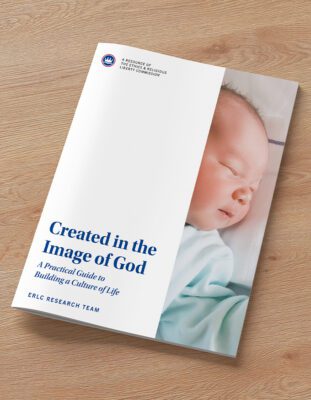When people consider whether or not they should do something, the decision is built on a more foundational assumption about what makes something right or wrong.
The pro-life discussion is a good example. There is often a red-faced debate around this issue, but minds are rarely changed by superficial word-jousting. Why? Because the discussion is rooted in something much deeper than scoring points in a rhetorical volleyball match. The conversation is not solely about pragmatism (“abortion is the best option in the case of rape”); it’s about fundamental views on morality (“abortion ends the life of a person”). The practical cannot be separated from our moral values.
Pragmatism and moral absolutes
As believers, we don’t want to be merely pragmatists. Our moral and theological values necessarily lead us to believe that there’s more to an equation than what simply “gets the job done.” Otherwise Jesus, the Lord we worship and obey, was a terrible example. His followers dwindled from a few thousand to less than a dozen, culminating in crucifixion. That’s hardly practical.
And yet, we fall into the trap of thinking only practically about practical issues. A person who says he is willing to give up his own life and follow Jesus can’t ignore the moral obligations that undergird his actions. Even practical commands from Jesus like “love your parents” or “bless those who curse you” flow from a commitment to being impractically obedient to God. We don’t represent a God who wants us to live a life that “works better.” No, we represent a God not bound by human answers.
As his people, we are called to radical submission regardless of the promise given by a current pragmatic solution. We don’t divorce our spouse despite the fact that we might be less annoyed without them; we pledge “til death do us part” because marriage mirrors the self-sacrificing radical forgiveness and reconciliation Jesus offers his people. The moral absolute trumps the pragmatic response.
Weighing moral absolutes with pragmatic answers
These issues are often complex because, well, life is complex. There might be a hundred different solutions when making a decision, and that’s not necessarily a bad thing. The key is to identify the morally responsible stance on the issue, and then choose from the various morally responsible options. Consider the examples we’ve already used.
In the case of abortion, we first determine that the child is a human being, made by God, at conception. So we rule out having the abortion, and then we decide if it would be better to keep the baby or give the child up for adoption. Either might be the right thing to do. Preserving the life of the child is the morally responsible stance because human life is precious to God.
In the case of divorce, we first determine that abandoning our spouse because he or she annoys us is not an acceptable option. Once divorce is ruled out, we then consider the options. The option might be to work through the difficulty, not knowing when it will get better. The option might be to seek professional counseling, not knowing how long it will last or if it will work. Instead of what’s expedient at the moment, we think with the big picture in view. Some of the strongest marriages are marriages that, instead of leaving when it got hard, stayed together and figured out a way to reconcile and repair the damages caused in the past.
These decisions are not always easy, but always worth working through. And by the grace of God, we have a chance.











